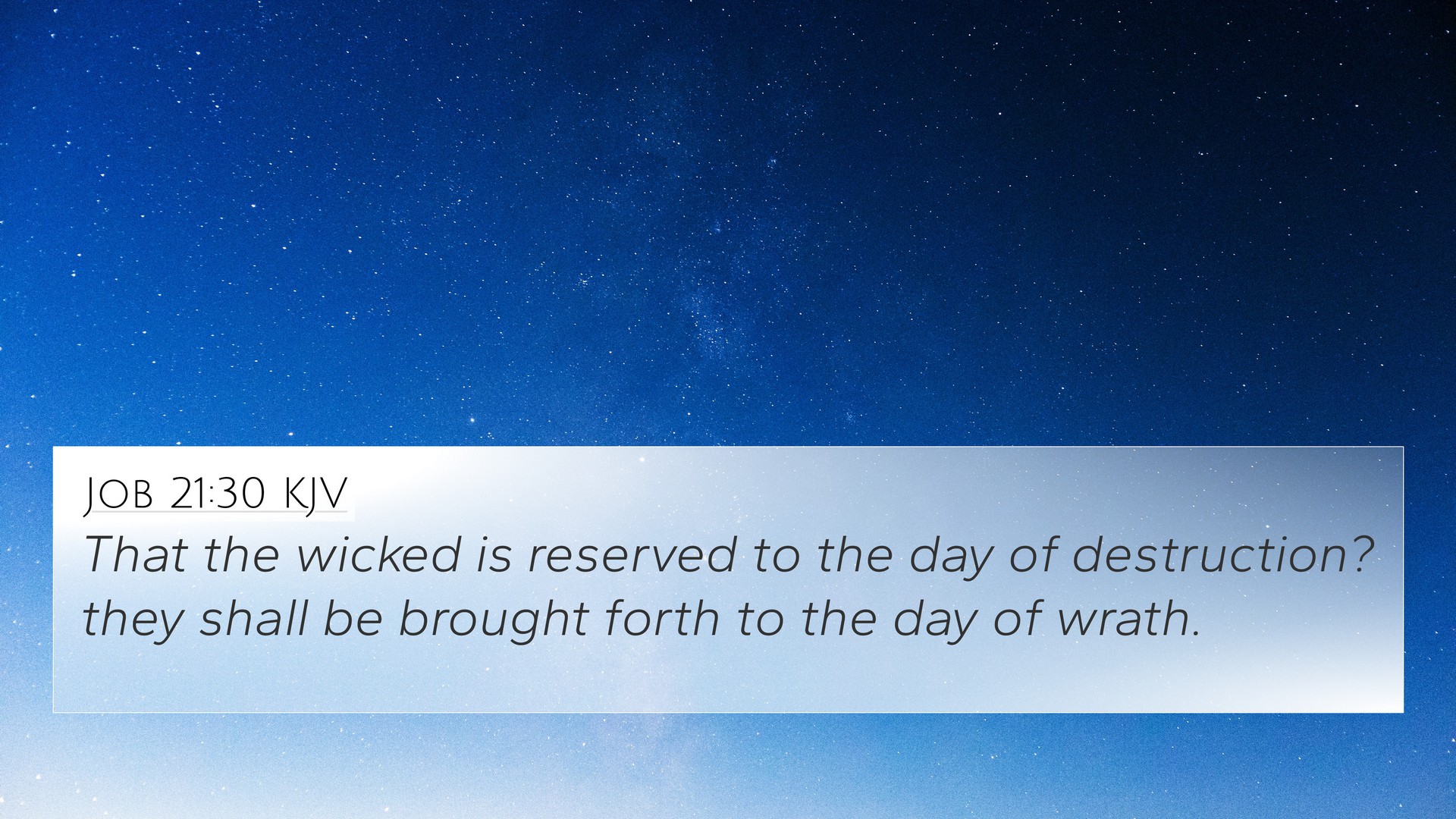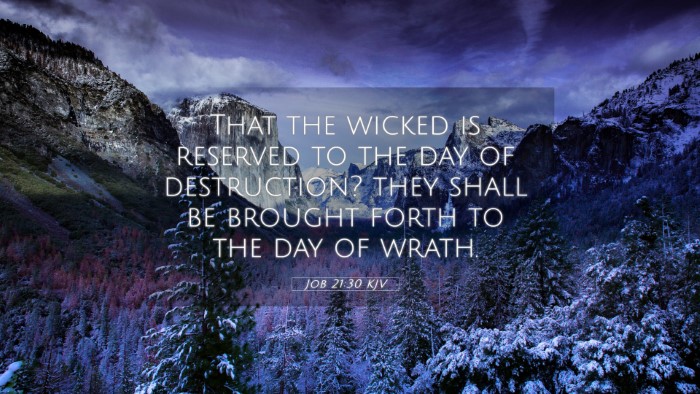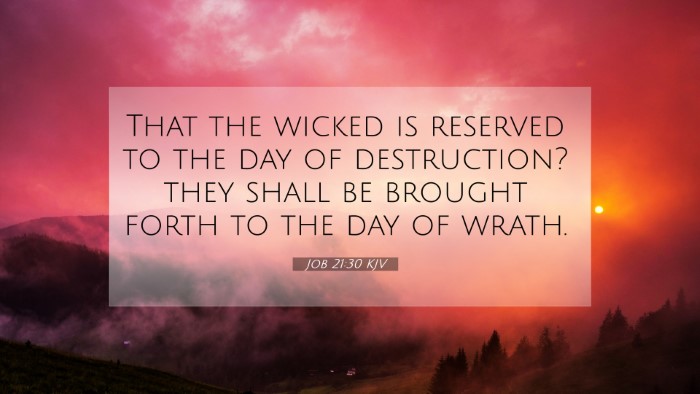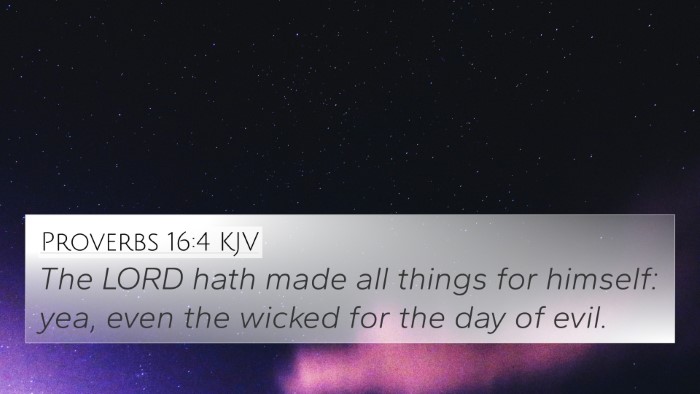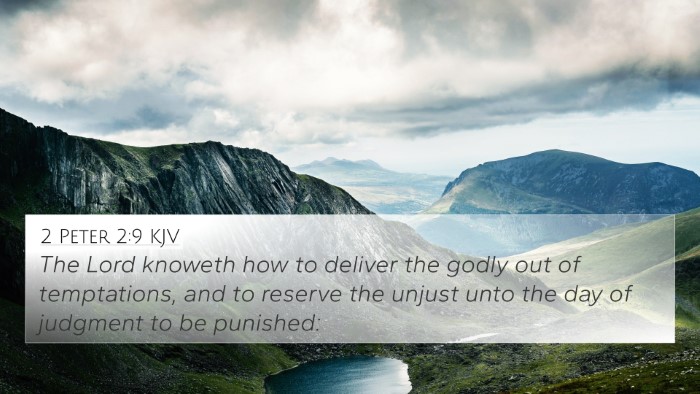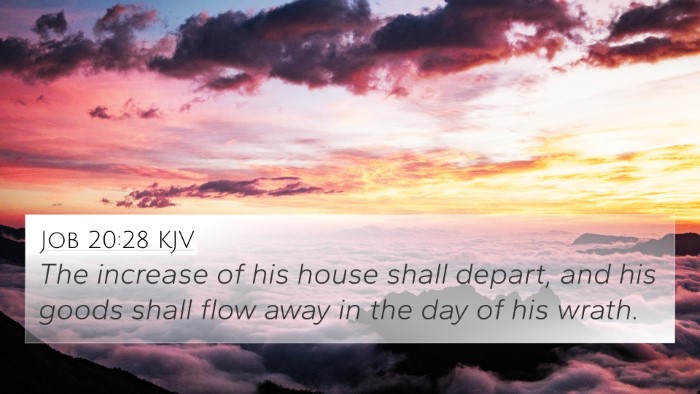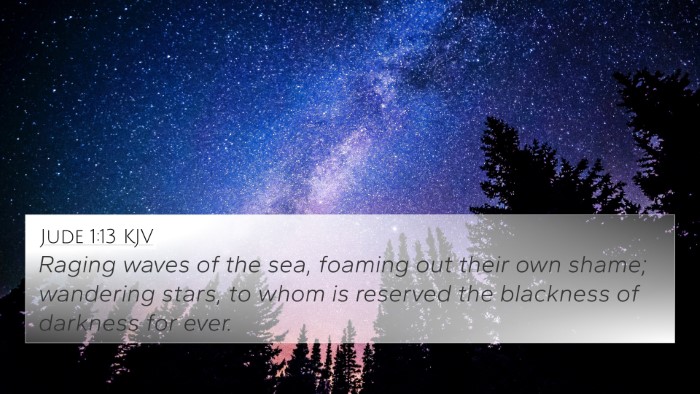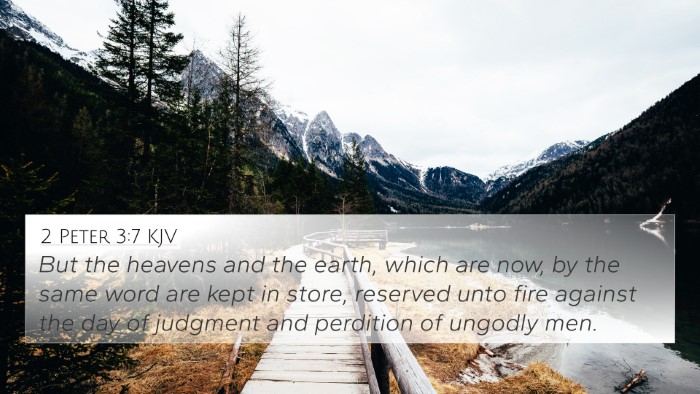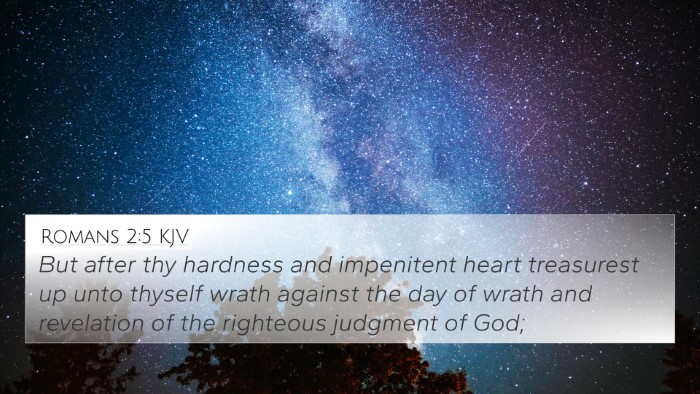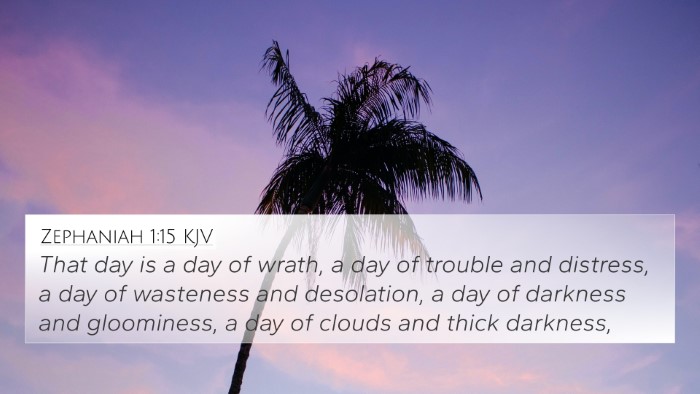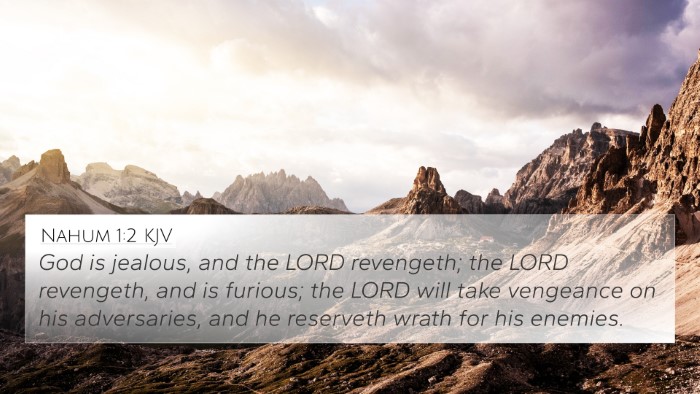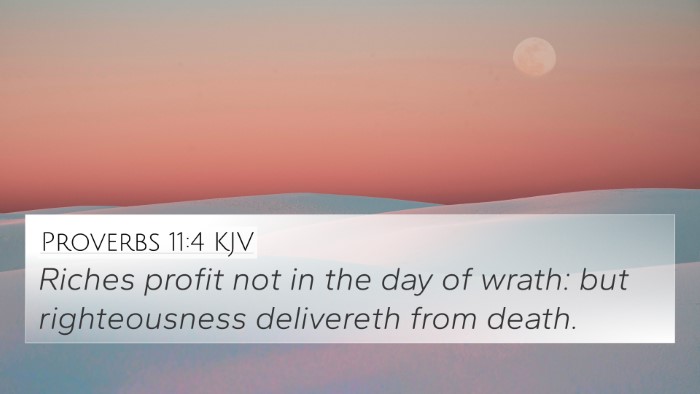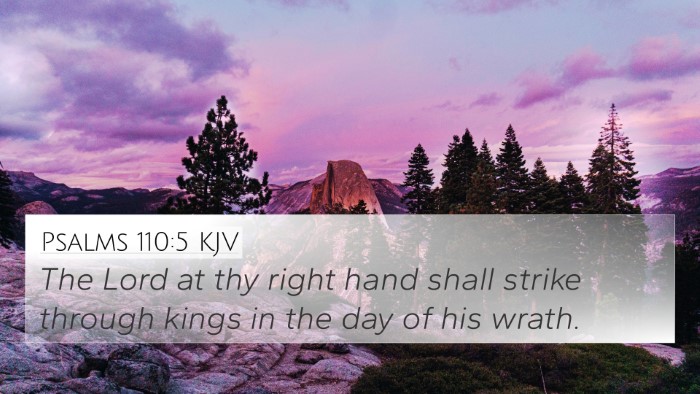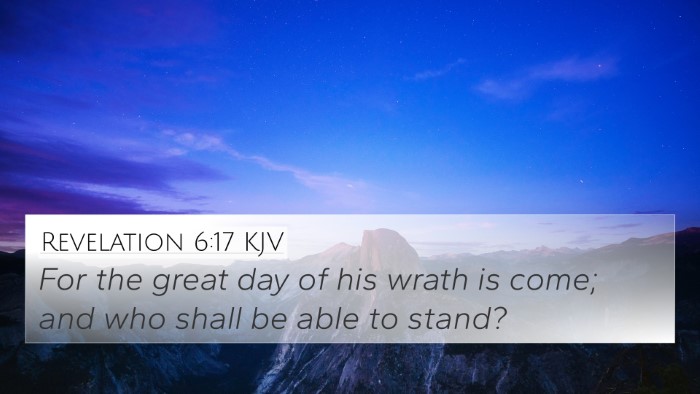Understanding Job 21:30
Job 21:30: "That the wicked is reserved to the day of destruction? They shall be brought forth to the day of wrath."
Overview of Job 21:30
This verse is part of a larger discourse where Job defends his position against the assumptions made by his friends. He argues that the wicked often thrive in this life, challenging their belief that prosperity is linked to righteousness and suffering to wickedness.
Insights from Public Domain Commentaries
Matthew Henry's Commentary
Matthew Henry suggests that Job's assertion challenges the conventional wisdom that the wicked are inevitably punished in this life. Job implies that there is a future judgment that awaits the wicked, which may not be seen immediately. The "day of destruction" implies a divine reckoning, validating Job's perspective of enduring injustice in the present.
Albert Barnes' Notes on the Bible
Albert Barnes emphasizes the theme of delayed justice. He points out that while the wicked may seem to escape immediate consequences, God has reserved ultimate judgment for them. He elucidates that this verse serves as a reminder of God's sovereignty and justice, hinting at the moral order upheld by the Creator, even amidst apparent chaos.
Adam Clarke's Commentary
Adam Clarke interprets this verse as an affirmation of faith in divine justice. He notes that Job speaks to the misjudgment of the wicked's apparent prosperity, urging that they will ultimately face calamity. Clarke provides a broader context for the reader, inviting reflection on the nature of suffering and righteousness.
Related Bible Verse Cross-References
- Psalms 37:16-20: A contrast between the fate of the righteous and the wicked.
- Psalms 73:17-19: An exploration of the prosperity of the wicked and their ultimate destruction.
- Ecclesiastes 8:12-13: A reflection on the fate of the wicked who appear unpunished.
- Malachi 4:1: A prophetic declaration of the wicked's judgment at the end times.
- Matthew 13:41-42: The parable of the weeds illustrates final judgment against the wicked.
- 2 Peter 2:9: Assurance of God's ability to reserve the unjust for punishment.
- Revelation 20:11-15: The great white throne judgment for the dead, including the wicked.
Thematic Connections
This verse connects to various themes throughout scripture, illustrating the tension between earthly experiences and divine justice. It invites a comparative Bible verse analysis, enriching our understanding of God's justice across both the Old and New Testaments.
1. The Reality of Divine Justice
The concept that although the wicked prosper temporarily, their fate is sealed by God is echoed in numerous passages.
2. The Perception of Suffering
Job’s experience reflects humanity's struggle with understanding suffering, further illuminated by New Testament doctrines that assure believers of justice.
Comparative Study of Related Themes
This theme leads to broader explorations of how the Old Testament prophets and the New Testament teachings intersect and inform each other regarding justice and the fate of the wicked.
Practical Applications
This verse encourages believers to reflect on the nature of God's justice and encourages perseverance in light of earthly injustices.
Tools for Bible Cross-Referencing
- Using a Bible concordance to trace themes.
- Engaging with a Bible cross-reference guide for deeper studies.
- Employing cross-reference Bible study methods to explore inter-Biblical dialogue.
